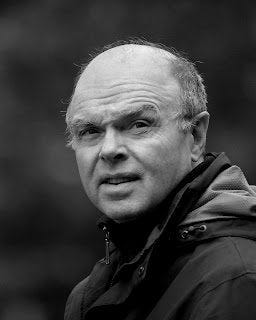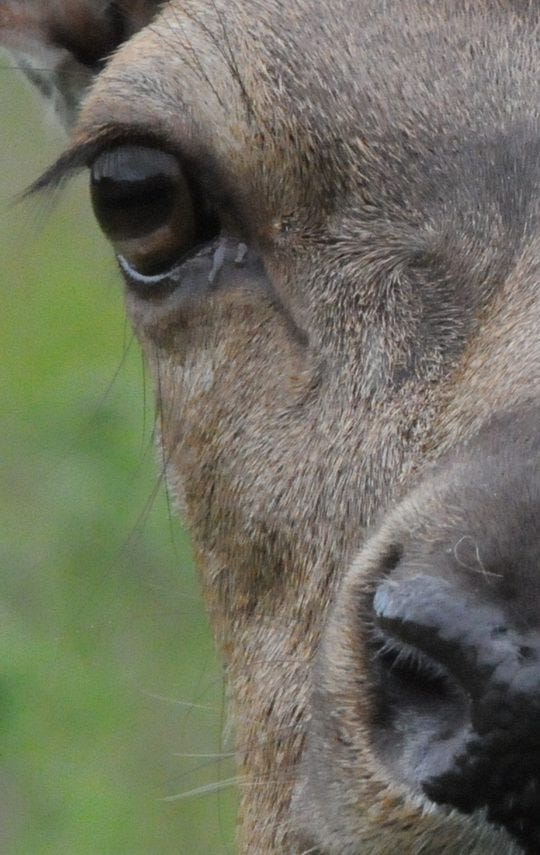Living in the world as if it were home
More about essays written by a Canadian a poet this week, but not Lia Purpura this time.
I have just treated myself to a new copy of a book that has done more, perhaps, to shape my thinking than any other. Recommended to me many years ago by the poet Em Strang (thanks Em!), I already have a bashed-up ex-library copy of Tim Lilburn’s slender essay collection “Living in the World as if it were Home”, that I had to hunt down online as it was out of print at the time.
But it’s a book that has come to mean so much to me that when I saw that a new edition of it has been published by Xylem Books I treated myself to a new copy.
It’s hard to explain briefly why this book has been so important to me. Perhaps it’s because it is essentially a book of essays about looking, and as an artist and writer I suppose looking is pretty central to my creative life.
The essays are also about love of place, of trees, deer, scrubby grasses, slow rivers, in unremarkably familiar landscapes, and about how to be at home in a natural world that we may sometimes suspect would really rather us modern humans weren’t around. But the essays come at these ideas with such an intensity of desire for the world, such freshness, rigour and depth of understanding they’re like a bracing dip in cold water.
This is the kind of writing that wakes you up from the trance of everyday life that we slip into so readily. Every time I dip into them I feel reinvigorated, reawakened, re-sensitised.
The collection opens with the question “what work might have to be done in order to live in the world as if it were home”? The work, Lilburn argues throughout these essays, is to look.
And look he does, with what Dennis Lee described in his introduction as an “almost unnerving concentration of desire’”
Lilburn doesn’t look at special things or places but at the ordinary, scrubby land in which he lives, places where “the land is turned away, forgotten, blurred, curled in”, unglamorous places where the land “looks like scraped hide, bits of hair still tufted to it”.
He captures a sense of the natural world’s strangeness and otherness, in spite of our longing to be at one with it. We have all had the experience of meeting the gaze of a wild animal, a curious blackbird or startled deer, and wondered what kind of connection is or isn’t being made in that moment. Lilburn describes how two deer come into his back yard one winter day, regular visitors who are surprised by his presence standing by the woodpile. Human and deer pause to look at each other and:
“Consciousness walks across the land bridge of the deer’s stare into the world of things. This is knowing. It tastes of sorrow and a towering appetite.”
His initial feeling of awe as he sees the deer and meets their gaze shifts to mortification. He realises that all his lofty feelings and attempts to penetrate their nature are really strategies of possession, and will only reduce them to concepts or sentimental symbols.
What consciousness finds, Lilburn argues, is not a “clear view into the heart of things” but only “further particularity, a new version of distance”. He sees the world as
“a collection of oddnesses, things so gathered into themselves, so ruthlessly at home and separate, they seem to shine with difference” and that the “weirdness, unreachability of things, is not abolished by any sudden aberration of intimacy fluked into being by a deer’s look, but is intensified by it”.
Lilburn’s essays walk a quiet path of humble attentiveness. Grounded in contemplative practice and slow knowing they aspire to a lessening of the ego:
“Reverent attention reveals a thing’s indifferent oddness before which you feel small.”
There’s a humility here that, I think, tells us something important about how to live in the natural world with courtesy and restraint.
Lilburn spent several years as a Jesuit and he draws on the teachings of early Christian mystics.
Although these teachings aim to show us a route into the divine, Lilburn discovers that they also show us a way to relate to nature more ecologically.
“The knowing of discrete things, these sandhills, the rose hollows, chokecherry tufts dark in snow, the deer, is a not-knowing of them, a humbling of the mind’s workaday craving for fixity, certitude.”
He looks at the deer in his yard and wants to see nothing but the deer. Not his own or received ideas about deer or his feelings for them. But the deer, of themselves, are unknowable. They “show out from around the word ‘deer’ and they have no name.”
So these are essays about looking, and they are also essays about language. How can words capture experience when they say both too much and too little about what they are addressing? The world’s particularity, the specificity of each thing, its humbling complexity, overflows all our attempts at naming.
“If you look hard enough at the world, past a region of comprehension surrounding things, you enter a vast unusualness that defeats you. You do not arrive at a name or a home. Look at a meadow long enough and your bearings vanish. The world seen deeply eludes all names; it is not like anything; it is not the sign of something else. It is itself. It is a towering strangeness.”
The result of this is a quieting of our human cravings. Lilburn describes the cultivation of a calm attentiveness as
“a stance of quiet before things in which your various acquisitivenesses – for knowledge, supremacy, consolation – are stilled, exhausted before the militant individuality of what is there.”
These essays draw on Lilburn’s background in philosophy, theology, particularly that of the via negativa of the early Desert Fathers, and he uses some arcane terms (glossed at the back) so they are rich fare. But I’m really glad that Xylem books has re-issued this fine collection. It deserves to find more readers.
BUY THE BOOK FROM CORBELSTONE PRESS
In an afterword in this edition Lilburn writes:
“We are lonely for the world and I sense the world is lonely for us…We wish to go back and nourishingly see, as well as be seen by, the places that know us best.”
To “nourishingly see the places that know us best” seems like a worthwhile aspiration to me.
I hope it does to you too
Sam








